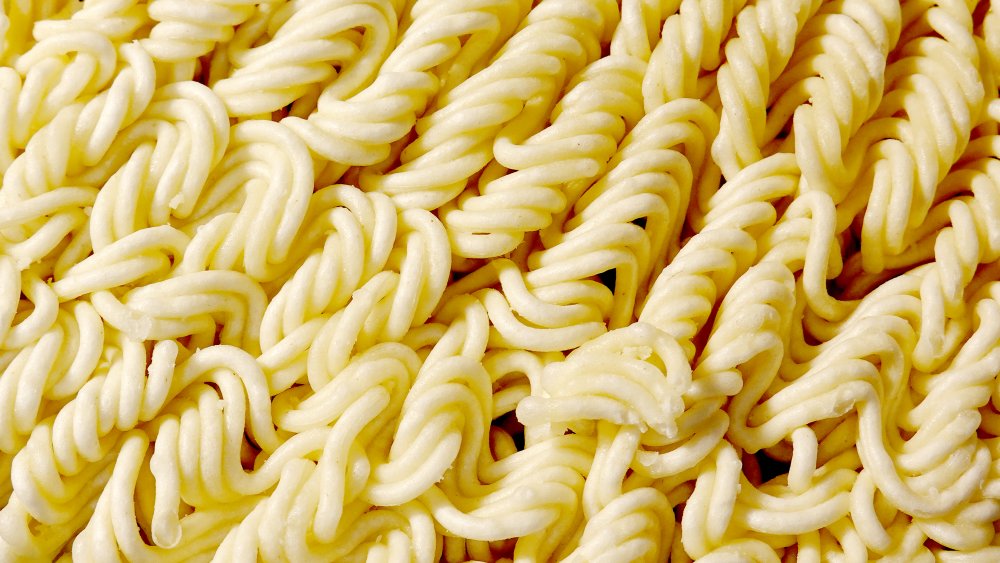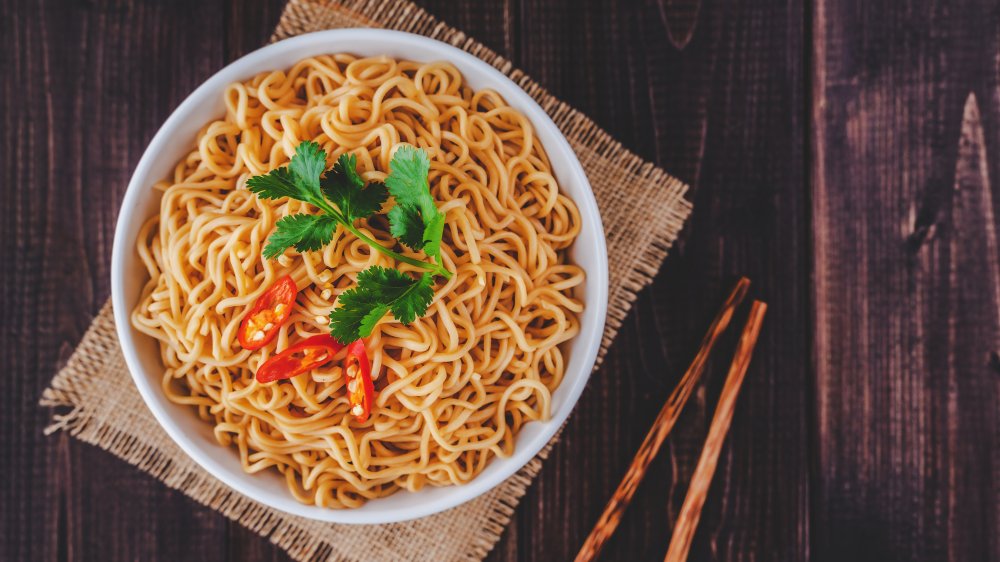The Reason Ramen Noodles Are So Bad For You
Instant ramen noodles might be the unofficial food of the broke college student, but they're not exactly the most nutritious meal either. For the student who has burned through their meal plan one month into the semester, a case of instant ramen off Amazon for $10 is a pretty good deal.
If you have a soft spot for instant ramen noodles, you may want to reconsider taking a trip down nostalgia lane and pass on eating them again, though. This convenient meal really doesn't offer much of anything other than convenience.
Ramen noodles don't offer much nutrition
It's important that we distinguish right away that there's a big difference between homemade ramen noodles and the ones that cost a dime at the grocery store. As Spoon University points out, real ramen is made with hand-pulled wheat noodles, while stuff like Top Ramen is simply mass-produced dehydrated noodles that are full of preservatives.
According to Healthline, while instant ramen may be low in calories, and the noodles themselves do have some nutrients like such as iron, they lack a lot of key nutrients your body needs. Instant ramen noodles are a poor source of protein, fiber, potassium, calcium, and vitamins A, C, and B12. They may fill you up for a short period of time, but their nutritional offerings are going to be a real letdown for your body.
Ramen is basically a big bowl full of sodium
Aside from a bowl of empty calories, the real health culprit here is that packet of seasoning that gives noodles their flavoring. Sure, it makes them tasty enough for you to choke them down, but that little seasoning packet is one big sodium bomb.
A diet high in sodium can raise blood pressure and increase the risk of heart disease and stroke. One package of instant ramen contains roughly 88 percent of an adult's recommended daily sodium value. Eat two packets a day and you'll be way over that sodium dosage.
Also, it's not just the sodium content that's concerning here, but the potential health effects of those noodles. A study published in the Journal of Nutrition (via Cooking Light) found that women who consumed instant ramen twice per week or more were 68 percent more likely to be obese.
Oh, and did we mention that there's also a preservative in instant ramen known as TBHQ that has been linked to vision problems? Um, no thanks.
Perhaps it's a good idea to pass on that bowl of instant ramen and opt for a classic PB&J sandwich instead.


